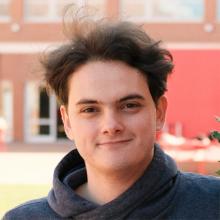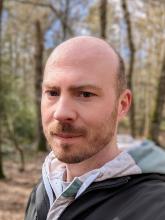Abstract
What makes a platform efficient? Is it how quickly code executes, or is it how quickly developers can use it to solve problems? Quarkus makes both people and hardware more efficient. That’s cool, but how does it work? Usually, we expect to trade-off developer experience against runtime efficiency. In this session, Holly will dive into some of the technical underpinnings of Quarkus’s efficiency. She’ll give advice for those using or considering Quarkus - should you be doing reactive programming? Do native binaries run fastest? She’ll also share general principles and transferrable discoveries from the engineering team, such as knowing what you’re optimising for, avoiding cache pollution, and how to be static-but-dynamic.
Interview:
What's the focus of your work these days?
I’m a senior principal software engineer, helping to build Quarkus. I’m focussed especially on the community of people and companies who are extending the Quarkus ecosystem, and also on the sustainability of Quarkus.
What's the motivation for your talk at QCon London 2024?
The Quarkus team have made so many good engineering decisions, especially in the area of efficiency, I want to share them with the wider technology space. There are a lot of lessons in what Quarkus have done that can be applied to all sorts of areas.
How would you describe your main persona and target audience for this session?
The target audience has two parts; one is people who are using, or considering using, Quarkus, and want to know a bit more about what’s under the hood. The second group is people who maybe aren’t looking at Quarkus, but who are looking at making their systems more efficient.
Is there anything specific that you'd like people to walk away with after watching your session?
For people who’re not using Quarkus, I’m hoping they’re able to steal a whole bunch of ideas and techniques and best practices from seeing what Quarkus has done. These might enable them to make better use of hardware or be more performant, but they might also improve the team’s human efficiency; after all, people are in general, the most expensive ingredient in a development project. For people considering Quarkus, I hope they get a better understanding of all the ways Quarkus can help them and also understand the ‘why’ behind some of the design decisions.
Is there anything interesting that you learned from a previous QCon?
I just love QCon and always get so much out of the sessions, I’m struggling to think of just one thing!
Speaker

Holly Cummins
Full Stack Engineer, Building Quarkus @Red Hat, Former Lead Consultant
Holly Cummins is a Senior Principal Software Engineer on the Red Hat Quarkus team and a Java Champion. Over her career, Holly has been a full-stack javascript developer, a WebSphere Liberty build architect, a client-facing consultant, a JVM performance engineer, and an innovation leader. Holly has used the power of cloud to understand climate risks, count fish, help a blind athlete run ultra-marathons in the desert solo, and invent stories (although not at all the same time). She gets worked up about sustainability, technical empathy, extreme programming, the importance of proper testing, and automating all the things. You can find her at http://hollycummins.com, or follow her on socials at @holly_cummins(@hachyderm.io).









